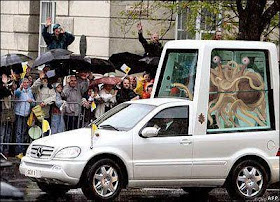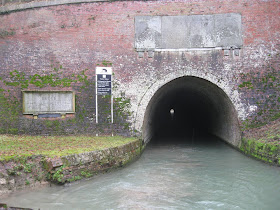At the National Secular Society's conference last September, Nick Cohen gave a rousing speech entitled "
How modern blasphemy works in practice".
In his introduction he included a quote from the late Christopher Hitchens:
“
Its not enough to have free speech. People must learn to speak freely.”
The contents of his speech and accounts of his work lead me to wonder whether he might pick up the mantle that was so tragically dropped a year ago, and the following notes might help you to understand why I suggest this.
A lady had said to him that morning on his journey, “
What's the point of the NSS? You've won haven't you? We're a secular society.”
She was missing the point. We have a de facto blasphemy law. It has not been passed by parliament and is not enforced by courts. It brings with it no right to be innocent until proven guilty and there is no right of appeal. Instead, it is based on the threat of violence. There is a huge system of self-censorship which overwhelmingly hurts the country.
Cohen often sees the fear in editors and broadcasters eyes. If we provoke the intolerant then we put people at risk. People have now worked hard to develop this whole theory that to insult Mohamed is to perpetrate Islamophobia when in fact it is nothing of the sort. Those who threaten retaliation are little better than truculent children and we can't expect them to behave as Westerners.
He suggested going back through the great writers in favour of free speech.
Milton's
Areopagitica, 1644, pointed out the absurdity of censorship. What kind of person would want to be a censor? It certainly couldn't be anyone of talent or they would want to do their own work. On that basis, anyone who wants to be a censor is unfit to be one.
More recently,
The Jewel of Medina by Sheri Jones strove mightily
not to cause offence, and in her version of the story of the life of Mohamed, Jones made him tell his wife to remain with her parents until she had grown up
(which probably never happened even if a real Mohamed actually did exist, for which there is absolutely no historical evidence). The book got a $100K advance. Then in spite of bending over backwards
to avoid telling the truth she was accused of causing offence! Publication of the book was pulled. A professor in Texas had said “
This book is an insult to Islam” so the publisher believed him. Eventually it was released by a new publisher, whose home was subsequently fire-bombed. The very fact that someone said the above led to fire-bombing.
Also everyone is afraid to admit that self censorship exists. Journalists all like to pose as dissidents in a dictatorship, challenging establishments, transgressing boundaries – normally this is nonsense. They simply seem unable to acknowledge that certain topics are just off-limits.
One reason why the banking crash came out of the blue was that journalists knew that challenging a city institution costs a lot of money to defend. But no journalists want to say that they and their editors are afraid of litigation. Because we can't admit our fear we make excuses.
Cohen wants to emphasise the importance of at least being honest about being a coward. The language of the liberal left has been corrupted and turned on its head to accuse people of racism etc. Many people who use this language are genuinely afraid.
(John Stuart )Mill realised that there were other ways of confronting extremism than the law. Online public opinion is one way now. It is not hard to beat a holocaust denier in open argument and if you can't do it you shouldn't be in the business of trying. It is important to have your answers ready and to make people feel absurd for using silly arguments.
A few hundred years ago you would know that the finest minds in the world, such as Isaac Newton, also had supernatural beliefs as a broad explanation of the world around them. Now that is no longer possible. As soon as you reach some level of knowledge you will know that the greatest minds of today do not hold those unscientific views now. Religion is no longer able to be involved in high culture. This makes religious people defensive and wary of learning. Religion now knows itself to be intellectually on-the-back-foot. Instead it can become ultra-fundamentalist and aggressive.
People don't understand the point of political extremism is that there always
HAS to be something to keep their supporters inflamed.
I think it is time for me to read more of Cohen's work, but first I need to complete reading Hitchens long book of essays, "Arguably"













